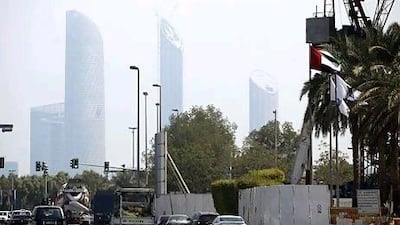Abu Dhabi's economy grew 6.8 per cent in real terms in 2011, almost double previous official forecasts, a new study has found.
Using 2007 prices, the emirate's economy grew from Dh606.06 billion (US$164.97bn) in 2011, up from Dh567.8bn a year earlier, according to preliminary figures from the Statistics Centre Abu Dhabi (Scad).
It was the first time Scad has produced GDP statistics using constant prices, intended to strip out the effects of inflation.
"The emirate's economy has evidently overcome the repercussions of the global financial crises, as detailed data point to significant growth in real terms across all activities and sectors, both oil and non-oil," Scad said.
The 6.8 per cent real rate of growth in the emirate's economy beat an earlier 3.8 per cent forecast for the year made by the Abu Dhabi Chamber of Commerce in 2010. The oil sector accounted for 52.4 per cent of the emirate's economy last year, Scad said.
Among the emirate's non-oil sector activities, the fastest growth was recorded in the transport, storage and communications sector, which increased 12.5 per cent.
Restaurants and hotels were next, with 11.4 per cent growth, and property followed with a rise of 10.9 per cent.
The Abu Dhabi Economic Vision 2030 plan for industrial diversification plots annual growth of 7 per cent a year until 2015, when growth tapers off to become an annual rate of 6 per cent.
The rate of growth published by Scad also surprised economists, who attributed the increase in economic activity to a surge in the price of oil as a consequence of unrest in Libya.
Brent crude futures averaged $111.63 a barrel last year.
"The strong growth rate appears to have been driven primarily by the oil sector, which ramped up production in line with other regional oil producers, following the decline of Libyan output," said Liz Martins, a senior economist at HSBC.
"Despite the impressive return of Libyan supply, strong growth in the oil sector appears to have continued this year," she added. "Outside of the oil sector, things are still somewhat challenging, with very little credit growth or fiscal stimulus to boost the non-oil economy."
The IMF estimates that the wider UAE economy grew at 4.9 per cent last year in real terms.

